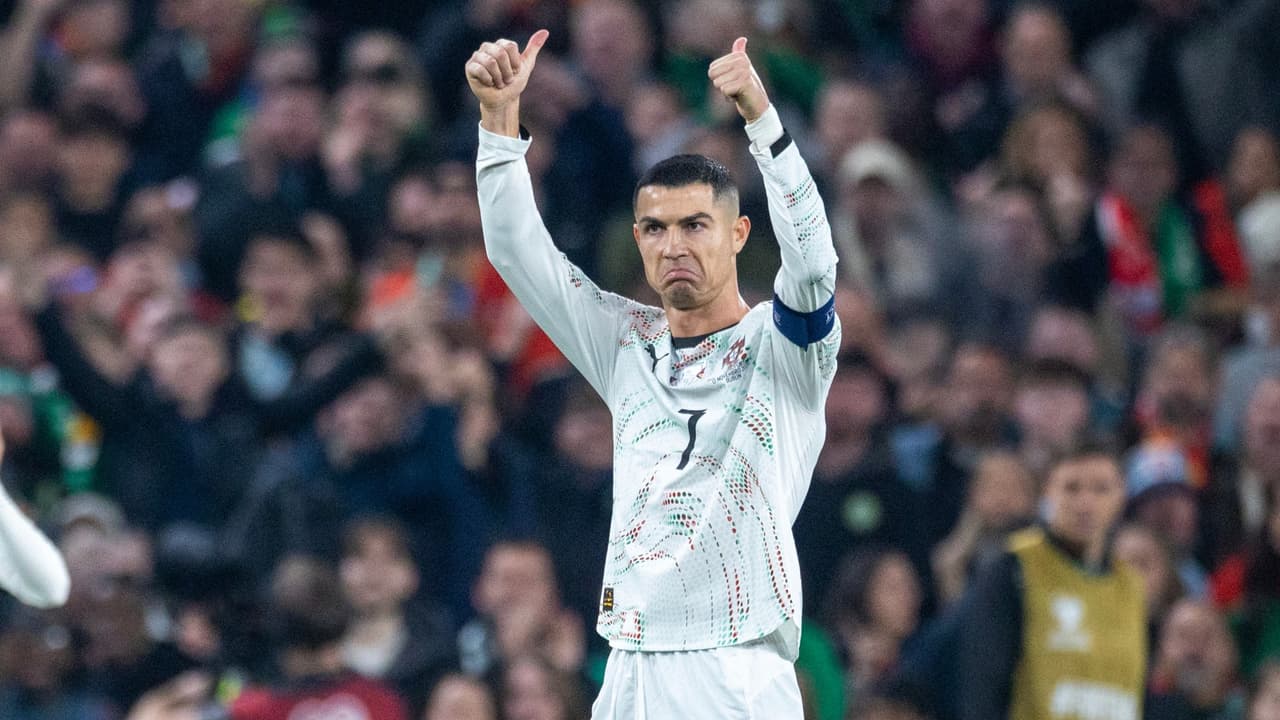FIFA faces backlash for suspending Cristiano Ronaldo’s ban, allowing him to play Portugal’s first World Cup matches. Rivals may take the case to CAS, sparking a legal storm before the tournament begins.
Cristiano Ronaldo’s presence at the 2026 World Cup was always going to be headline-grabbing. But few expected his journey to begin with a legal firestorm threatening FIFA — the global body now facing potential courtroom battles over its controversial decision to suspend the superstar’s ban.
A 40-year-old Ronaldo, defying age and expectations, is once again at the centre of global football’s biggest debate.
A Shock Decision That’s Raised Eyebrows
Earlier this month, Ronaldo was sent off for elbowing Ireland defender Dara O’Shea in a fiery qualifier — an incident that earned him a three-match ban. Under normal circumstances, cases like these fade quietly after the sanctioned player serves their punishment.
Not this time.
In what critics are calling a brazen and unprecedented move, FIFA opted to suspend the remaining two matches of his ban, clearing Portugal’s captain to appear in their first two World Cup games.
Ronaldo has already served one match — Portugal’s 9-1 thrashing of Armenia — and walks into the World Cup essentially free of sanction.
Opponents Ready to Lawyer Up?
As per a Daily Mail report, nations drawn to play Portugal in those crucial fixtures may take the fight to the Court of Arbitration for Sport (CAS) to reverse FIFA’s decision.
That would mean a panel in Switzerland weighing the legality of the suspension and whether the original punishment must be reinstated.
Whether rival associations choose to escalate the battle remains uncertain, but insiders hint that several federations are watching closely — especially nations whose own players are banned without leniency.
To mount a challenge, any claimant must prove:
- They are directly harmed by Ronaldo playing
- Their group qualification chances are materially affected
- FIFA’s call was legally flawed despite disciplinary discretion
A legal expert described it as a potential “test case” with high stakes for international football justice.
FIFA’s Justification: The Law Is On Their Side
FIFA’s rules are at the heart of the argument.
Their disciplinary code mandates “at least three matches” of suspension for “assault, including elbowing, punching, kicking, biting, spitting or hitting an opponent”.
But Article 27 provides a powerful exception — it allows a judicial committee to ‘fully or partially suspend’ such a sanction.
FIFA defended its stance in formal language:
“In line with article 27 of the Fifa Disciplinary Code, the serving of the two remaining matches has been suspended under a one-year probation period.
If Cristiano Ronaldo commits another infringement of a similar nature and gravity during the probationary period, the suspension set out in the disciplinary decision shall be deemed automatically revoked and the remaining two matches must be served immediately at the next official match(es) of the Portuguese representative team.
This is without prejudice to any additional sanctions imposed for the new infringement.”
The governing body insists its disciplinary panel is “fully independent.”
The Trump Connection and Political Optics
Adding drama to the saga, Ronaldo was a guest of US President Donald Trump at the White House just days before FIFA’s announcement.
For critics, the optics are suspicious — a global icon mingling with political power while disciplinary relief conveniently follows.
Even those who hesitate to accuse FIFA of favouritism acknowledge: when Cristiano Ronaldo benefits, the world notices.
Portugal Watch: Who Could Face Him First?
The World Cup draw takes place next Friday in Washington DC.
England are safe — they cannot face Portugal in the group stage. But Scotland, Wales, Northern Ireland, and even the Republic of Ireland could find themselves staring down a Portugal attack strengthened by a motivated Ronaldo.
A possibility that might push some federations toward action.
Football’s Biggest Question: Rules for All — Or Rules for Some?
Critics argue this moment could reshape football governance. Is FIFA applying equal justice? Would a less famous player receive the same leniency? Will this set a dangerous precedent for disciplinary decisions tied to commercial appeal?
Ronaldo has scored five goals in Portugal’s road to the United States. Opponents fear that number could rise — at their expense — if FIFA’s ruling stands unchallenged.
What Happens Next?
For now, the ban is suspended — and Ronaldo prepares to lead Portugal again.
But if rival nations choose to push back, FIFA may soon find itself defending not just a disciplinary ruling, but the integrity of the sport.
Ronaldo’s World Cup story hasn’t even begun, and already football’s legal machinery is gearing up.
Whether in Washington’s stadiums or Switzerland’s tribunals, the next battle for the Portuguese legend may be just around the corner.
